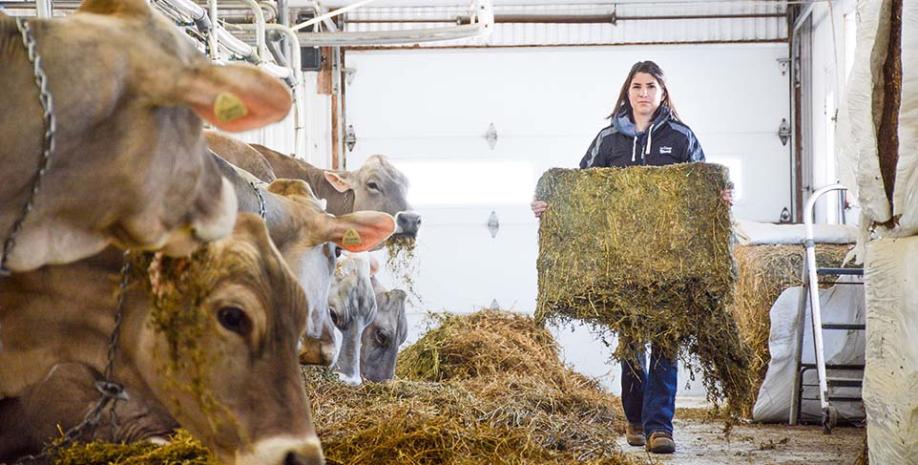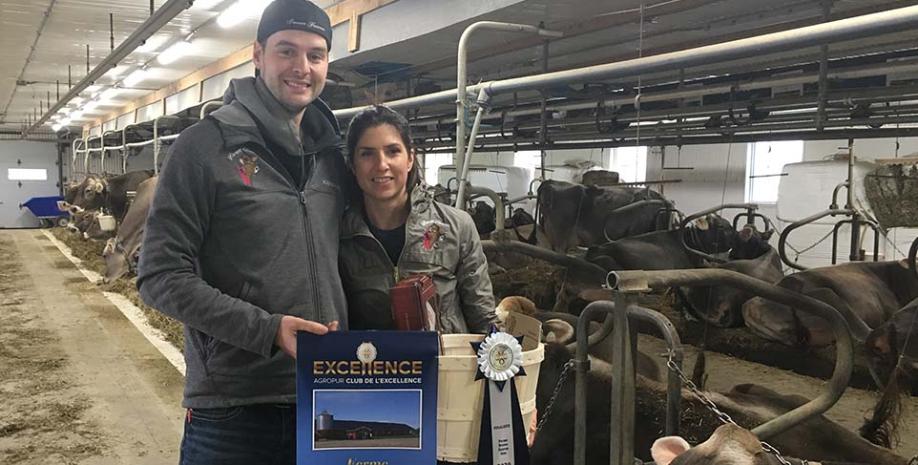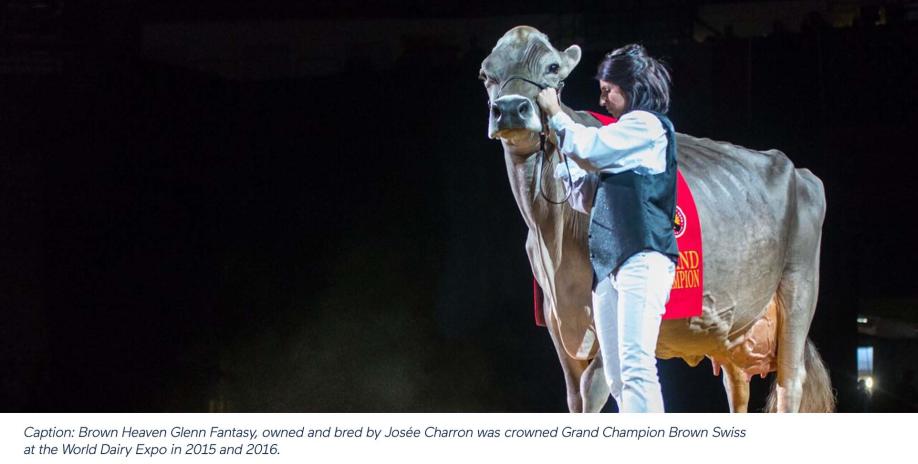Comfort and Quality Feed are Must-haves for Producer Josée Charron

Agropur member Josée Charron combines purpose with passion on her farm. Producing high quality milk by harnessing a commitment to animal welfare and a desire for superior genetics.
Owner of Brown Heaven Farm in Verchères (in the Salaberry-Richelieu region), Josée Charron has 85 Brown Swiss cows, one of the rarer breeds in Canada. She sits on the board of directors of the Club Brown Swiss du Québec, which has 120 registered members. “Many farms have a few head but a complete herd, there’s no more than 10 or so in Quebec,” she explains. Josée Charron has always had a commitment to her community. She’s also involved on the boards of the Conseil québécois des races laitières (CQRL) and of the Centre d’insémination artificielle du Québec (CIAQ).
On her farm, she cares deeply about the comfort and ration of her heifers. “No detail is too small, and we try not to overlook anything. These are our cows of tomorrow.”
Feed quality is also key, and our mentalities have changed, “In the old days, we usually put a dry cow out to pasture. Now we treat them equally or better than the others to prepare for the next calving. We’re always trying to improve.”
Consistency, discipline, and methodology are key terms for Josée, who personally looks after the calves on her farm. “We give them the same quantity of milk, at the same temperature and at the same time. And I only swear by raising the calves outside because that gives you healthy animals with great growth.”
An Active Participant in the Show Ring
In addition to being a five-time winner of the Agropur Club of Excellence, Josée and her husband Dave Rousseau take part every year in the World Dairy Expo. It is one of the largest dairy-focused trade shows in North America, which takes place in Wisconsin in early October.

“We’re bringing 8 to 10 cows for the Brown Swiss dairy show, which attracts approximately 350 animals out of the 2,000 attending the World Dairy Expo,” says Josée. “The classes are sorted by age for the heifers and cows, and we generally have one representative in each class.”
Josée feels that it’s very important to stand out at this type of event. “It costs a lot to participate, but our embryo and animal market is international. There are very few Brown Swiss shows now, and it’s important to us to participate.

The Importance of Fostering the Next Generation
At 39 years old, if Josée could improve the business climate of the industry she loves, it would be by making more room for younger producers. “The agricultural landscape is made up of bigger farms with higher of purchasing power,” she explains. “Which makes it less accessible for a young person who wants to get started in farming.”
It was with this in mind that she got involved in the Cooperative. She also had the chance to participate in the Young Cooperative Leaders Program in 2020, where she was able to discover a new facet of the Cooperative by visiting the fresh product plant in Saint-Laurent. “It is impressive to see how everything works after the milk has left the farm. To understand the alignments, how our objectives are constructed or thought out. That was really interesting,” she says. She counts her contacts with the other young farmers and the heads of the Cooperative as among her favourite moments of the experience.
She feels privileged to have gained a clearer insight into the issues of the industry and explored the Cooperative her father joined as a member years ago.
“Our generation was not there at the very beginning. If nobody explains to us how much work is involved to get there, we’ll never understand. The quota system, the transportation, the plants—all that hides a lot of work going on behind the scenes. And you can’t take that for granted.”

